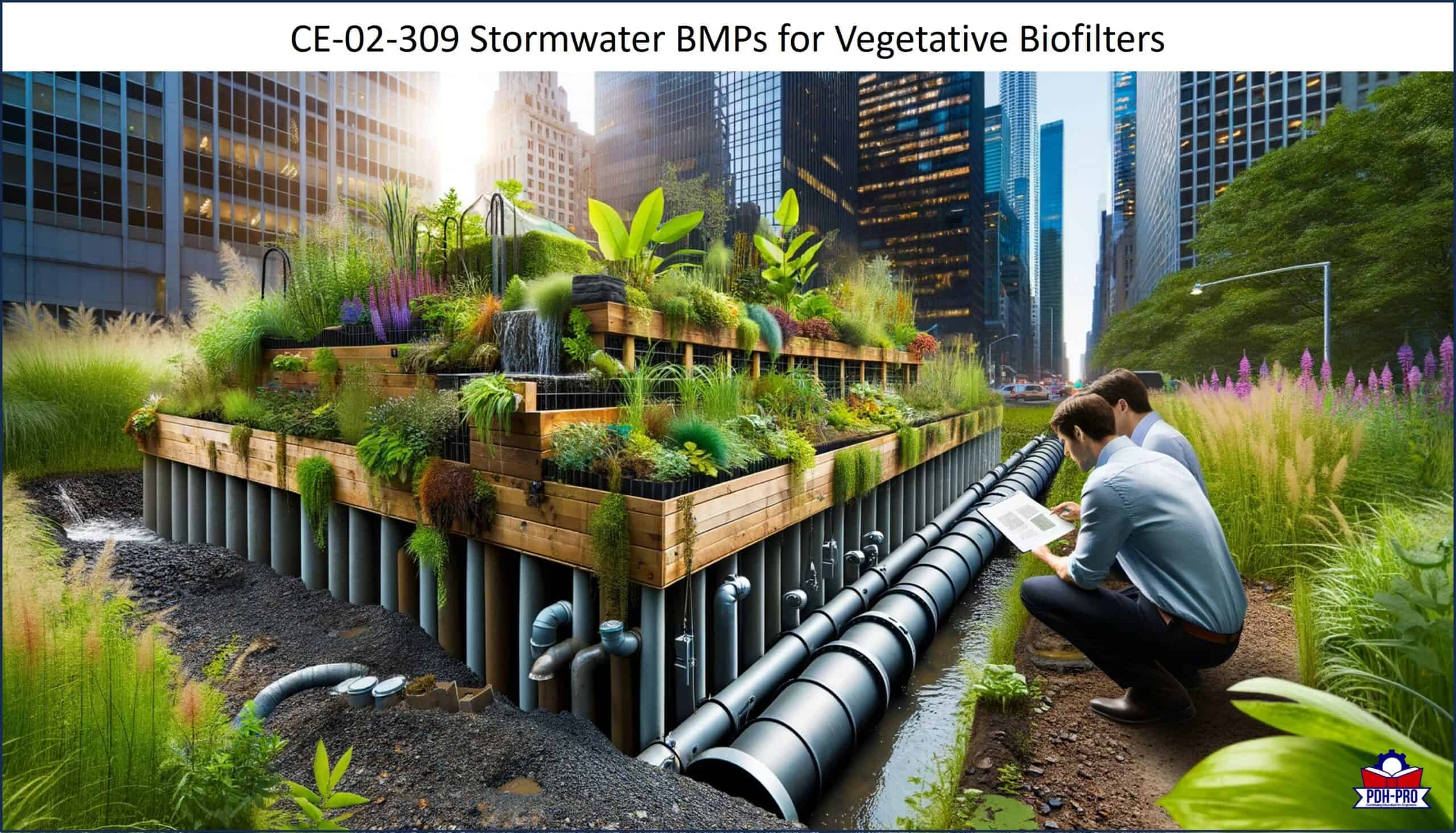
Stormwater BMPs for Vegetative Biofilters
Historically vegetative biofilters, such as grass swales, were used primarily for stormwater conveyance (Ree, 1949, Chow, 1959 and Temple, 1987). However with the passage of the Clean Water Act, and the focus on water quality management of urban runoff, the potential for the application of these techniques has begun to be reconsidered and many additional benefits have been identified. Today biofilters are being applied to address all of the design objectives of urban stormwater management.
This course provides guidance on the selection and design of stormwater management Best Management Practices (BMPs). It provides specific design guidance for a group of onsite BMP control practices that are referred to as vegetative biofilters. Three different types of vegetated biofilter BMP types have been identified and are described in this course. These include:
- grass swales
- vegetated filter strips
- bioretention cells
In addition, grass swales contain three variations that include:
- traditional grass swales
- grass swale with a media filter
- wet swales
Thus a total of five BMP types are available for use and are described in this course.
This course presents the following useful information to help you to determine if it is suitable for your continuing education needs. Please review this carefully to ensure you receive useful and beneficial information.
Learning Objectives
This course is intended to provide you with the following specific knowledge and skills:
- Vegetated Biofilter Types
- General Design Considerations
- Analysis Procedures for Runoff and Pollutant Loading
- Vegetative Filter Strips
Download the Course to review and begin earning your PDH credits.
We provide technical courses for PDH credits that meet Board requirements for Professional Engineers, Geologists and Land Surveyors. This courses is guaranteed to be accepted in AK, AL, AR, AZ, DE, GA, FL, IA, IL, ID, IN, KS, KY, LA, MD, ME, MI, MN, MO, MS, MT, NC, ND, NE, NH, NJ, NM, NV, NY, OH, OK, OR, PA, SC, SD, TN, TX, UT, VA, VT, WI, WV, and WY. Before purchasing this course, please confirm that your state Board is listed above.
